Vertical farming refers to crops grown vertically, in stacked layers, perhaps on several floors inside the building by using artificial lights and a whole range of relatively new technologies. It is the process of growing crops in vertically stacked layers in a controlled environment. It not only reduces the need for water but also increases the ability to produce and cultivate a large variety of crops. More importantly, the vertical farming ecosystem holds the key to the major problem of weather-related crop damage.
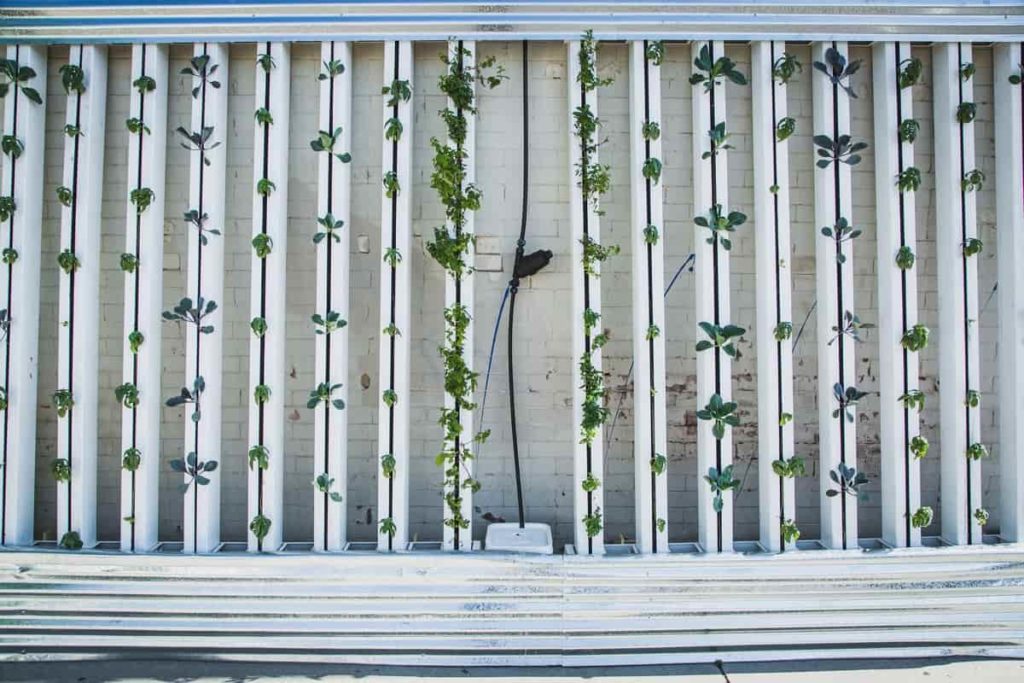
It can be done in a small space and also in a large area. Old warehouses, skyscrapers, extra unused spaces can be used for vertical farming techniques. Vertical farming in India is mostly poly house-based farming. Polyhouse farming is a safe method that gives high yield and production of crops all over India. Vertical farming companies can help to control limited land area, increase crop yields, and reduce the environmental impact of land farming. Check out the top 20 vertical farming companies in India below.
Top 20 vertical farming companies in India
AeroFarms
This company has won many awards for its operations and using its patented “aeroponic technology to a new level of productivity with the minimal environment to take indoor vertical farming”. Vertical farming is, multistory greenhouses – use 90% less land than conventional farming while harvesting 80% more per unit of area. Like more than one farm, AeroFarms has grown more than 250 varieties of leafy vegetables and sold more than 20 varieties of vegetables, such as Arugula, Kale, and Spinach, but hopes to expand its offering in the future.
AeroFarms is leading the way for indoor vertical farming and advancing transformational innovation for agriculture. The hydro cascade hops submerged into a growing medium that supports and nurtures plant roots with nutritious water through Aero Farms’ indoor vertical farming technology platform. This allows hops to grow anywhere in the world, at any time of the year with consistent results and produce more with fewer resources.
The company uses proprietary aeroponics for better production. AeroFarms is a provider of soilless farming systems. It has a built-in system consisting of layers of growth medium, ventilation, and LED lighting that makes it a vertical form.
In case you miss this: Vertical Farming Scheme from Government: How to Get up to 75% Subsidy
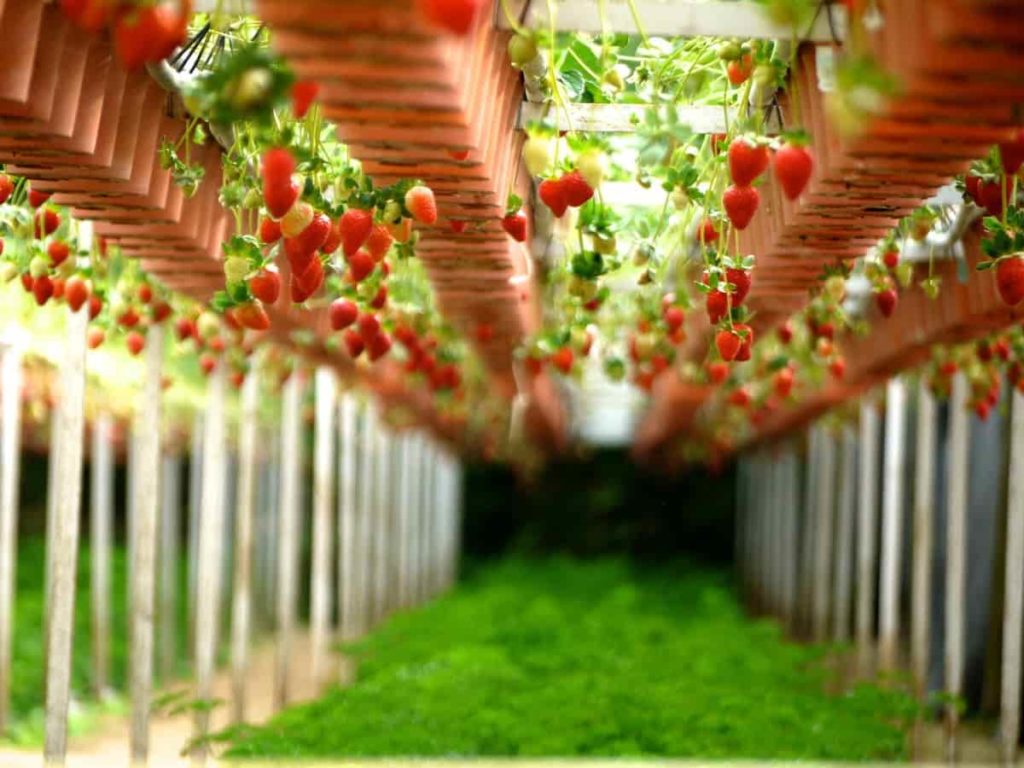
Plenty
Plenty company offers salads and vegetables. It is a vertical farming company The company grows its plants in tall towers inside a climate control facility with LED lights. It claims that it does not use pesticides, herbs, synthetic fertilizers, or GMOs. The system uses infrared cameras and sensors to collect data in the fields, which are analyzed to improve progress through machine learning. The company also claims that vertical fields use 99% less water than conventional fields.
GP Solutions
GP Solutions means “GrowPods”. This is finely tuned, automated, portable and scalable micro-farms that have been shown to grow all types of crops faster than conventional farming methods. GrowPods allow year-round cultivation, which maximizes ROI. Systems are sealed with external pathogens, contaminants, pesticides, and chemicals, and produce clean and strong crops.
GP Solutions also has a line of notable new proprietary clay mixtures, with no animal products. This is important because many other soils and additives can contain harmful pathogens and contaminants that can cause crops to become contaminated or fail rigorous testing.
Growing Greens
The company is a business-to-business plan that takes a variety of food products to higher locations, even though it is a small-scale farm. Important products cultivated in this company are Edible Flowers, Microgreens, Herbs, Pumpkin, Mint, Spinach, Coriander, etc.
Iron Ox
The company appears to be using more robotics than anyone else in the selection process and claims to run a completely independent indoor farm. It is also a supporter of Hydroponics, and a retail company. Its products are similar to others – leafy vegetables such as Lettuce and Kale or the like. This is one of the new startups on the list so a lot can change.
Iron Ox is the first vertical farm to be operated (almost) entirely by robots. The company has developed two robotic systems: a one-wheeled robot moves seed pellets around the warehouse and a robotic arm picks up individual plants and transfers them to each pellet. Their hydroponic growing system uses 90% less water than conventional farming and yields up to 30 times more crops per acre.
In case you miss this: Vertical Farming In India, How To Start, Crops
Upward Farms
This is an example of a vertical farming company that integrates vertical farming with aquaponics. They mainly produce micro greens and fish (striped bass) in a central facility. They show us that integrated farming is possible with vertical farming. It is an indoor vertical farming company on a mission to repair our broken food system and reconnect consumers with locally grown organic food.
Vertical roots
Vertical roots use indoor hydroponic container farming to maximize productivity and reduce pollution. They use the Nutrient Film Technique Hydroponic system with a system powered by indoor farming and real-time data technology to grow fresh organic vegetables.
Bright Farm
Bright Farm grows and supplies salad greens to Walmart and other retail companies across the United States. Production is fresh, with no shortage of GMOs, pesticides, herbicides, and fungicides. The company uses integrated hydroponic greenhouses and state-of-the-art techniques to guarantee high-quality production with 80% and 90% less water and land, respectively.
Bright Farms has complete control over the quality. This is because vegetables are grown, harvested, and packaged indoors. Because planting takes place in a water-controlled environment, the products are fresh and clean.
Smallhold
Smallhold provides ecological vertical farm units to retailers and restaurants that produce large quantities of mushrooms, herbs, and leafy vegetables with minimal effort. Their current product offering is on-site with mushroom production and can produce up to 120 lbs per week in bookcase space. Mushrooms are certified organic and competitive with traditional methods of growing.
Sasaki
Sasaki is primarily a property development company with a vision of vertical farming. As one of the leading vertical farming companies in Asia, the company is designing buildings that support indoor farming. The project features world-class vertical farming systems to meet the growing demand for local products, including Bok Choi, Kale, Spinach, and other leafy vegetables.
Altius Farms
The company maintains a constant supply of hyperlocal, fresh vegetables, and fruits throughout the year. The company prefers vertical aeroponic techniques, resulting in a 10% yield with 90% less land and 95% less water. It harvests once a month, which is commendable.
Intelligent Growth Solutions (IGS)
IGS is one of the leading vertical farming companies in India and the world with a 92-strong workforce and $ 18 million annual revenue. The company offers world-renowned, state-of-the-art solutions for vertical farmers. The company’s flagship communication platform, powered by IoT, allows vertical farms to increase their efficiency and reduce waste. This makes the platform a revolution in indoor farming.
In case you miss this: Vertical Herb Farming, Advantages, Ideas, and Tips
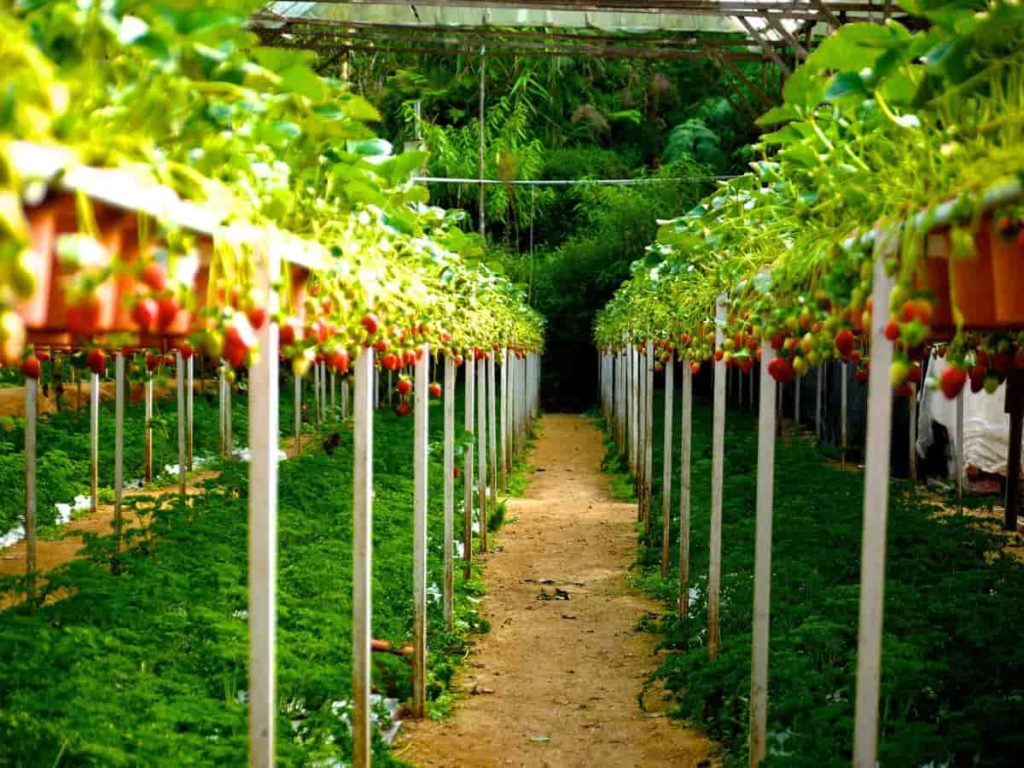
Bowery Farming
You would think that the beginnings of any type of farming would be clear from everything that has been genetically modified, but the fact is that Bowery offers a point to say that it has “zero” Pesticides and non-GMO “seeds are used. It may be suggested that some vertical farming companies do not have the same ideas. Bowery converts industrial spaces into smart farms where crops are stacked vertically to maximize space.
UrbanKisaan
UrbanKisaan builds an indoor vertical farms network in India and grows pesticide-free products using 95% less water and less than 1% of the land is required for outdoor farms. This saves 2,16,000 liters of water per farm per month (our farms are approximately 2,000 square feet). To improve the process around the farm, Urbankisaan develops advanced plant science as well as energy, process control, and big data to maximize flavors, improve shelf life, and produce incredibly clean food at incredible yields. Collects applications.
As a result, they are increasingly producing high-quality, clean products at affordable prices. UrbanKisaan also provides fresh and sustainable products to households through the subscription model. UrbanKisaan is undoubtedly one of the largest vertical farms in India as it operates several vertical farms in Hyderabad and Bangalore areas. According to their official website, Urban Farmer is proud to produce 30 times more than conventional farming with 95% less water.
The company offers a wide range of products online through its app and website. UrbanKisaan has complete control over variables such as temperature, humidity, nutrition, and light while using 5% more water and 1% more land than outdoor farms and allowing consumers to produce their products directly from their neighboring farms.
Our indoor farms are designed to create the perfect environment for plants, which are unexpectedly less affected by the changing seasons. UrbanKisaan has developed a complete stack of plant science and food production technology and it is a sustainable, high-tech, high-performance, automated indoor vertical farm that can produce delicious food.
UGF (Urban Green Fate)
UGF Farms began its vertical farming journey by transforming dead areas such as empty plots, areas between buildings and houses, and restaurants into developing hydroponic micro-farms. The company is fully committed to micro-farming and produces zero carbon footprint crops such as leafy vegetables and microgreen. In addition, UGF spreads awareness through its educational programs and workshops for schools and families on how to grow their products and reduce carbon emissions.
In case you miss this: Profitable Crops for Vertical Farming – A Full Guide
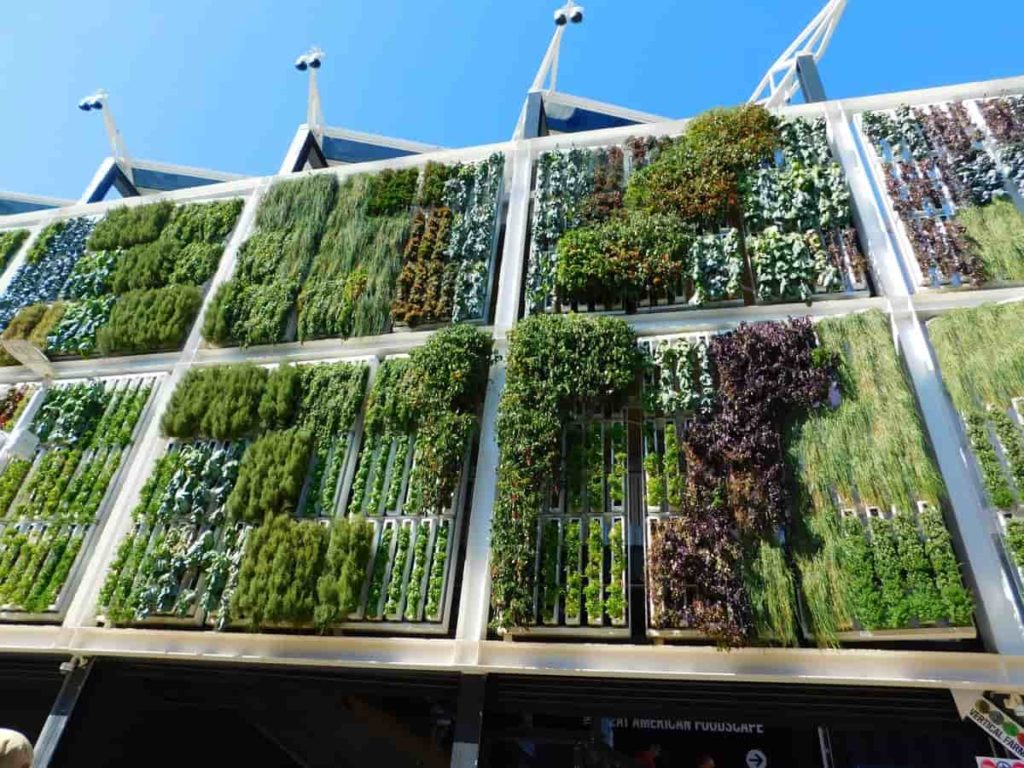
AgriCool
French vertical farm startup uses the aeroponic system to grow fruits and vegetables. It prefers strawberries to other products. Not a bad idea because strawberries are very popular in France, which has a lot of traditional agro-industry. AgriCool says it aims to be within 20 kilometers of its customers and offers a program called “Cooltivator”, through which users can learn how to use their technology and potentially self-employed producers and can become a distributor.
Triton FoodWorks
This vertical farm produces fresh vegetables using state-of-the-art technology such as hydroponics and aeroponics. The company has also developed the aeroponics system that allows it to grow almost any crop with a low risk of pathogens and diseases.
Triton FoodWorks was founded in 2014 and owns and operates 150,000 square feet of vertical farms in northern India. They grow more than 20 varieties of crops, including Strawberries, Tomatoes, Coriander, Broccoli, Microgreens, Cherry Tomatoes, Leafy Vegetables, Bell Peppers, Cucumbers, and Oregano.
Barton Breeze
Barton Breeze is redefining the farming experience with a combination of innovation and resource productivity. Based on Grogram, the company is committed to producing high-quality, nutritious, flavorful, and pesticide-free food from sustainable sources. To this end, it uses state-of-the-art farming methods and modern models based on industry best practices. The Barton model can limit fertilizer use to 40% and water use to 95% and accelerate plant growth.
Leafy vegetables can be grown in at least 12 days. Barton gives farmers complete control over the growing process, allowing them to provide their customers with identifiable produce. The company’s data center collects data from a thriving network of data points to improve form settings for flavor, color, and nutrition.
Babylon Micro-farms
This company provides an on-demand indoor farming service to make sustainable indoor farming more accessible than ever before. Their farms grow fresh produce twice as fast, using 90% less water than conventional agriculture, without the use of pesticides or harmful chemicals. Their business model significantly reduces the initial cost and expertise associated with indoor agriculture, which is powered by a patented IoT platform that remotely runs the farm ecosystem.
In case you miss this: Vertical Vegetable Gardening Ideas, Models, Set Up
Freight Farms
It ensures a steady supply of local, healthy, and fresh food internationally through a thriving network of farmers. The company offers a comprehensive platform of products and services to ensure easy access to local products. Freight Farms has established 200 farms worldwide, from Canada to the Middle East. In addition, the company offers integrated farming programs to create future-looking farmers.
- How to Make Houseplants Bushy: Effective Tips and Ideas
- Innovative Strategies for Boosting Coconut Pollination and Yield
- Pollination Strategies for Maximum Pumpkin Yield
- The Complete Guide to Chicken Fattening: Strategies for Maximum Growth
- Natural Solutions for Tulip Problems: 100% Effective Remedies for Leaf and Bulb-Related Issues
- Revolutionizing Citrus Preservation: Towards a Healthier, Greener Future
- Natural Solutions for Peony Leaf and Flower Problems: 100% Effective Remedies
- Maximizing Profits with Avocado Contract Farming in India: A Comprehensive Guide
- Natural Solutions for Hydrangea Problems: 100% Effective Remedies for Leaf and Flowers
- The Ultimate Guide to Choosing the Perfect Foliage Friend: Bringing Life Indoors
- From Sunlight to Sustainability: 15 Ways to Use Solar Technology in Agriculture
- The Ultimate Guide to Dong Tao Chicken: Exploring from History to Raising
- The Eco-Friendly Makeover: How to Convert Your Unused Swimming Pool into a Fish Pond
- Mastering the Art of Delaware Chicken Farming: Essentials for Healthy Backyard Flocks
- 20 Best Homemade Fertilizers for Money Plant: DIY Recipes and Application Methods
- How to Craft a Comprehensive Free-Range Chicken Farming Business Plan
- Brighten Your Flock: Raising Easter Egger Chickens for Beauty and Bounty
- How to Optimize Your Poultry Egg Farm Business Plan with These Strategies
- Subsidy for Spirulina Cultivation: How Indian Government Schemes Encouraging Spirulina Farmers
- Ultimate Guide to Raising Dominique Chickens: Breeding, Feeding, Egg-Production, and Care
- Mastering the Art of Raising Jersey Giant Chickens: Care, Feeding, and More
- Ultimate Guide to Raising Legbar Chickens: Breeding, Farming Practices, Diet, Egg-Production
- How to Raise Welsummer Chickens: A Comprehensive Guide for Beginners
- How to Protect Indoor Plants in Winter: A Comprehensive Guide
- Ultimate Guide to Grow Bag Gardening: Tips, Tricks, and Planting Ideas for Urban Gardeners
- Guide to Lotus Cultivation: How to Propagate, Plant, Grow, Care, Cost, and Profit
- Agriculture Drone Subsidy Scheme: Government Kisan Subsidy, License, and How to Apply Online
- Ultimate Guide to Raising Araucana Chickens: Breed Profile, Farming Economics, Diet, and Care
- Bringing Hydroponics to Classroom: Importance, Benefits of Learning for School Students
- Ultimate Guide to Raising Polish Chickens: Breed Profile, Farming Economics, Diet, and Care
- Ultimate Guide to Raising Australorp Chickens: Profile, Farming Economics, Egg Production, Diet, and Care
- Silkie Chicken Farming: Raising Practices, Varieties, Egg Production, Diet, and Care
- Sussex Chicken Farming: Raising Practices, Varieties, Egg Production, Diet and Care
- Homemade Feed Formulations for Livestock: Discover Cost-effective Starter to Finisher Feed Recipes
- 20 Best Pig Weight Gain Supplements: Top Swine Weight Gain Formulas
- Ultimate Guide to Elderberry Farming: Propagation, Planting, Yield, Cost, and Profit
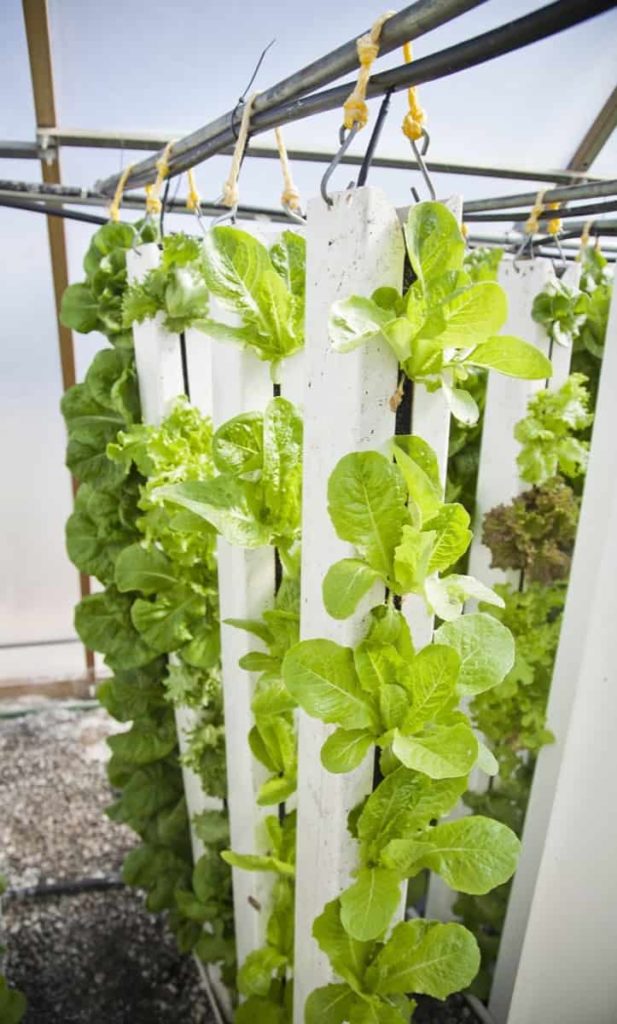
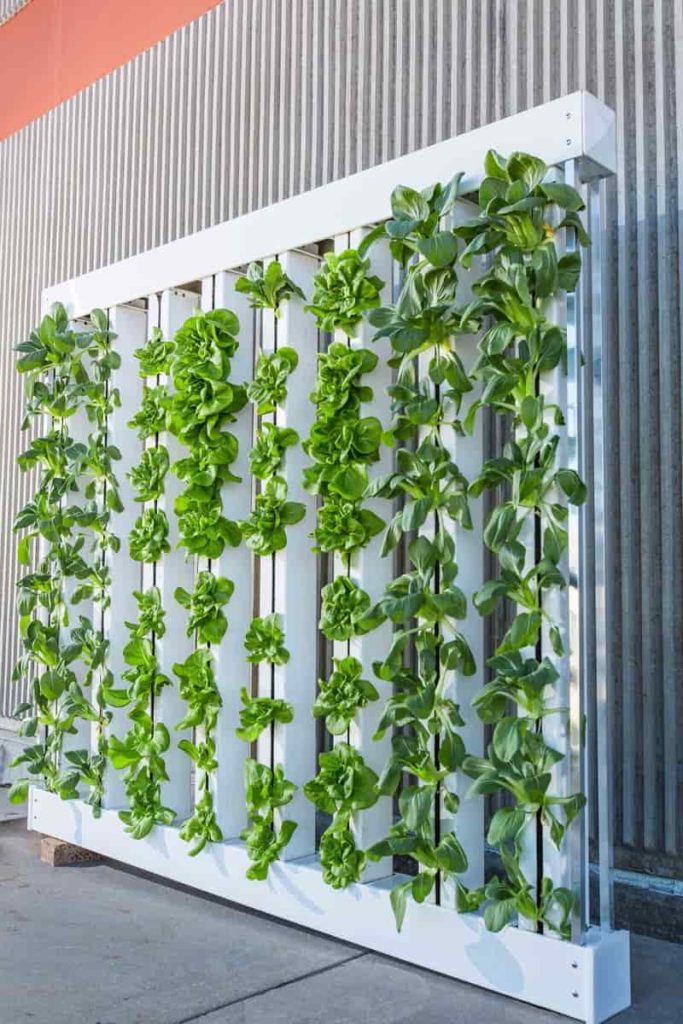
Cost of plant and all details of project